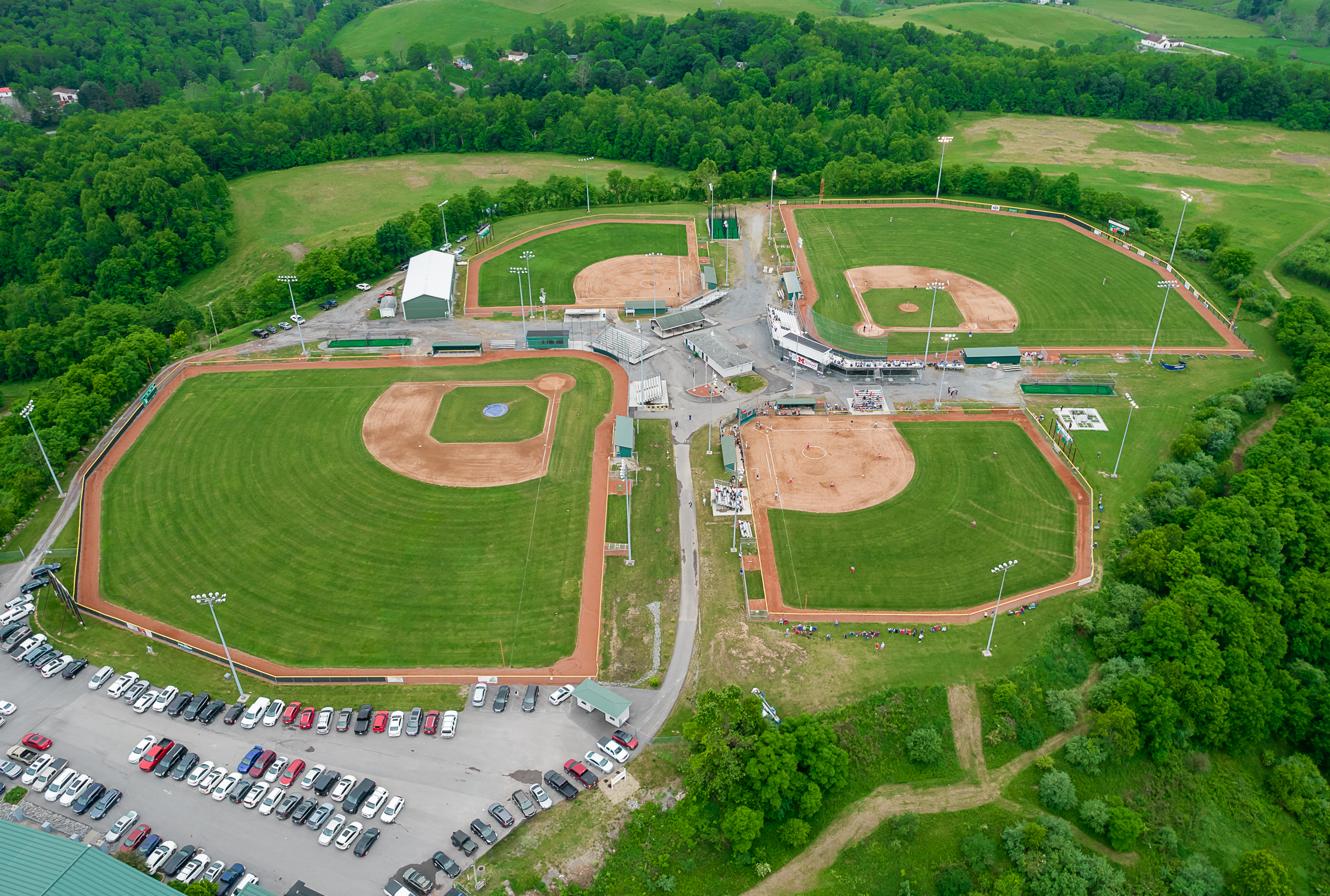The Mylan Park Foundation in Morgantown was one of nine organizations recommended by Gov. Jim Justice to receive grant money from the Abandoned Mine Land Economic Revitalization (AMLER) Program, also known as the AML Pilot Program, during a press conference Wednesday.
Together, the nine grants totaled $24,770,265 and went to organizations from across the state.
Justice said those chosen for the grants are developing sites either on or near mines that were abandoned pre-1977 and the money will bring additional economic development to the state of West Virginia.
Terri Howes of the Mylan Park Foundation said they were very excited when they got the news they would be awarded a $3,750,000 grant toward the development of Mylan Park RV Resort and Campground.
“We are beyond excited to see this continuing growth of what used to be just four softball and baseball fields on an old reclaimed mine area, and we just are very thankful to the vision and philanthropy of community leaders and now the economic growth opportunity provided by AMLER,” Howes said. “We look forward to continuing our mission which is to advance the educational, recreational, social, and economic benefits to the North Central West Virginia citizens. Thank you, thank you, thank you.”
Justice said the campground project fits right in with all the exciting things Department of Tourism Secretary Chelsea Ruby is causing to happen and will help West Virginia stay on the move.
“There is a lot of people coming and a lot of people want to be here and everything,” Justice said to Howes and other Mylan Park representatives. “We just have to provide great places and things for them to do, so I am excited about your project, it’ll be really good.”
Justice praised the program as a whole, saying it would be an economic boon to individual regions, as well as the state.
“As that falls into the multiplier effect of dollars in those communities and everything, and the employment as it goes forward, it will be absolutely returning us dollars in West Virginia for a long, long time to come,” he said.
West Virginia Department of Environmental Protection (WVDEP) Secretary Harold Ward said the grant review process was a collective effort between the WVDEP, Division of Highways, and Economic Development, Tourism and Highways.
Ward commended the governor for having the vision to see and recognize projects that truly provide economic stimulus. “The fact that we can take resources, excess revenues, and place them to the rehabilitation or reuse of lands that have been impacted by pre-law mining, you know pre-‘77 mining, it’s just a great thing,” he said.
The grants differed in amounts, ranging from the $5,000,000 granted to Shilo Development Inc. for its Stonewood I-79 Development Project, to smaller ones like Kanawha State Forest Foundation, which was given $300,000 toward the Middle Ridge Trail System Project.
The West Virginia State Rail Authority got $1,500,000 toward their Elk River Rail Trail Project which they said could potentially be the largest rail trail in the state.
Austin Caperton, Founder and CEO of Appalachian Salmon, said his organization will be looking to raise future funds in addition to their grant for $5,000,000 and would be seeking investors. “Today you said to those future investors, ‘West Virginia is behind you,’” Caperton said to the Governor. “And because of you, investors are paying attention to West Virginia like never before.”
The Appalachian Botanical Company was given $1,600,000 toward a second location for a botanical lavender farm in Fayette County.
Nicholas Patterson, owner of Meta River Tiny Home Workshop, will now have $420,265 toward renovation of their location that suffered flood damage shortly after purchase.
Glenn Yost with the McDonald Clan Resort Project said the $4,000,000 they received will go toward a $35,000,000 development project around the Hatfield-McCoy Trail System and are looking to build 35 cabins, 15 RV sites, a store, a restaurant and a zipline.
$3,200,000 was allotted for the Edible Mountain Project with Grow Ohio Valley Inc. who said their money would be used towards transforming Wheeling’s Vineyard Hill area, formerly a coal mine, into an accessible and beautiful recreation space in the heart of downtown Wheeling.




